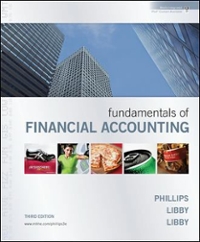Question
The failure of Colonial Life Financial (CLF) prompted sentiments of 'where were the auditors' from the wider community as in the case of other companies
The failure of Colonial Life Financial (CLF) prompted sentiments of 'where were the auditors' from the wider community as in the case of other companies that met similar fate after the 2007-2008 financial crisis. Prior to the collapse, Clico was the primary source of deposits that were used to finance CLF's expansion through investments and acquisitions held in the name of other entities in the group (Gordon, 2013; Trinidad and Tobago Guardian, 2013; Soverall, 2012). PwC issued a qualified opinion for CLF 2007 fiscal year. PwC issued a qualified report because they were unable to ascertain the fair market value of freehold properties within property plant and equipment and unable to disclose the nature and risks of financial instruments exposed during the reporting period. Except for these matters, the financial statements present fairly in all material respects the financial position of CLF as at December 31, 2007 (CLF financial statement, 2007). Clico, CLF wholly owned subsidiary had shown signs of possible financial difficulties a decade earlier. Clico restated its financials in 1999 and had low yield on assets, high expenditure, higher than normal returns to creditors or investors and a deficit in statutory funds (Dumbrek, 2013).
Other reported issues were, high finance costs, decreasing profit after tax, mismatched investments, high withdrawals from Clico, illiquid assets and a very high gearing ratio of 92% in 2007. CLF acquired more debt in 2007 to fund operations and disposed of several properties and investments. Approximately 58% of the group's total liabilities matured within one year of December 31, 2007. The company experienced a decline in operating income in 2007 and had negative cash flows from investing activity. CLF's profit after tax decreased by 21% in 2007, total expenses increased by 41% and finance cost increased by 28%. The finance costs were 34% and 38% of operating income in 2006 and 2007 respectively. Michael Carbalho testified that CLF cash flows were grossly insufficient to cover interest and loan repayments. Its subsidiary, Clico also had very high liabilities at the end of 2008. The due from related parties help to account for Clico's significant growth (Gordon, 2013). Executive Flexible Premium Annuity (Executive Annuity) ranged from 50% to 99% of total liabilities in the various countries of operations.
Although PwC won the Association of Certified Chartered Accountant prestigious quality check award in 2010, the firm came under scrutiny for its audit of Clico. The Trinidad and Tobago Guardian (2013) reported that the local governing accounting body was moving to discipline PWC for its audit of Clico based on the findings of a forensic report. A London based forensic accounting firm raised serious concerns about how PwC conducted its audit. The report noted that CLF had various areas of weakness and business risks and required bailoutfrom the Central Bank right after the PwC audit. "Within just two months of completion of the 2007 Group audit, CLF was in serious financial difficulties''(Trinidad and Tobago Guardian, 2013). The report stated that CLF significant issues, apart from the economic environment, should have led to a close examination of a going concern issue. Finally, the group's liquidity crisis and related party transactions were also noted as being excessive.
Required:
State the minimum disclosure requirements for the related party transactions between CLF and its subsidiary Clico as outlined in IAS 24
(b) List and explain four (4) issues which affected CLF's ability to continue as a going concern.
State five (5) audit procedures that were required of PwC to identify the conditions andevents indicating an issue with going concern at CLF?
(d) What are three circumstances under which an auditor issues a qualified audit opinion?Are you in agreement with the type of report issued by PwC? Why or why not?
Step by Step Solution
There are 3 Steps involved in it
Step: 1

Get Instant Access to Expert-Tailored Solutions
See step-by-step solutions with expert insights and AI powered tools for academic success
Step: 2

Step: 3

Ace Your Homework with AI
Get the answers you need in no time with our AI-driven, step-by-step assistance
Get Started


